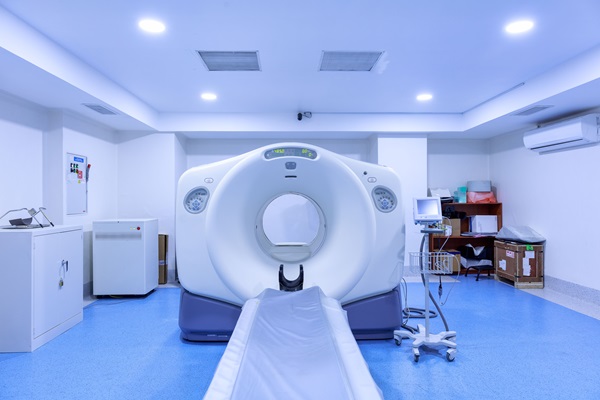Urgent Care: Signs of Dehydration in Adults

Urgent care centers can treat dehydration in adults, or they can determine if the symptoms are related to a different cause. It is crucial to understand the causes and symptoms of dehydration in adults to know when to seek treatment and avoid a more serious health concern. This review discusses in detail the various causes and signs of dehydration.
What are the causes of dehydration in adults?
It is essential to identify the cause of dehydration to keep it from worsening. In simplest terms, dehydration occurs when the body does not have enough water to function properly. The body loses water every day from sweating, breathing, and using the bathroom. Additional factors could lead an adult to lose water (become dehydrated) faster than they normally would. These include:
- Excessive sweating
- Fever
- Vomiting/diarrhea
- Peeing more than usual
Excessive sweating is often the result of physical activity, and sports are among the leading causes of dehydration. It is also important to hydrate more than usual while your body is ill, as symptoms of an illness, such as fever, vomiting, and diarrhea, can lead to an increase in daily water loss. Many people who become dehydrated are often busy and overwhelmed, which leads to them forgetting to hydrate. Some adults simply may not realize that they are thirsty or may be hesitant to drink due to a sore throat or mouth sore.
What are the signs of dehydration in adults?
Thirst is one of the primary indicators of dehydration. However, it is not the only clue, as there are other indicators that should be considered when determining if a trip to urgent care for dehydration treatment is warranted. The following are several signs of dehydration in adults.
Dry mouth
The primary symptom of dehydration is a dry mouth. The person may feel thirsty and have a desire to hydrate. The mouth may also feel sticky. It is important to note that not all patients with a dry mouth are dehydrated, especially the elderly, as the sense of thirst decreases with age.
Dizziness
The body and mind do not work as well when they are dehydrated. This can lead to feelings of dizziness and even fainting in severe cases. Any adult who feels dizzy without a logical explanation for the symptom should consider a visit to urgent care, especially if there are other symptoms of dehydration.
Discolored urine or an inability to urinate
When someone does not drink enough water, their kidneys try to save as much water as possible. This leads to discoloration of the urine or the inability to urinate at all (in cases of severe dehydration). When an adult is drinking enough water and the body is properly hydrated, the color of their urine should be clear or a very pale yellow, not discolored.
Excessively dry skin
The skin can begin to dry out as a result of dehydration. Many adults who are dehydrated report having rough, scaly, and itchy patches of skin. This is considered a more severe symptom of dehydration, and it typically exists in conjunction with other symptoms.
Rapid breathing and heart rate
Water is used in the lungs and nasal passages, and dehydration can lead to rapid breathing. The matter is then made worse because every breath brings in more dry air, so rapid breathing can cause dehydration at an even faster rate. In addition, the rate of blood flow decreases when the person is dehydrated. The heart compensates for this by beating more rapidly.
Fatigue and sleepiness
The body has to work much harder to function when it is dehydrated. This leads to excessive fatigue and sleepiness and a lack of overall productivity. Sleeping for long hours without drinking or eating can only worsen the patient's condition, so it is important to seek urgent care when fatigue exists along with other symptoms of dehydration.
When should I visit urgent care for dehydration?
If you are experiencing multiple symptoms of dehydration, it is crucial that you visit an urgent care center for treatment. If the dehydration becomes severe to the point that it is life-threatening, it may be best to visit an emergency room rather than an urgent care center. Dehydration is considered an immediate health concern that requires prompt care, so treatment from an urgent care center, rather than scheduling a visit with a primary care doctor, is typically recommended. If you would like to learn more and/or have questions, then get in touch with us today.
Get more information here: https://tx-urgentcare.com or call Texas Urgent Care & Imaging Center at (832) 941-1894
Check out what others are saying about our services on Yelp: Read our Yelp reviews.
Recent Posts
X-rays are popular tools medical professionals use to diagnose a wide range of health conditions quickly and safely. They allow these professionals to see inside the body without invasive procedures, making them invaluable in urgent and primary care settings. Whether identifying fractures, monitoring chronic conditions, or detecting abnormalities, X-rays are critical in ensuring timely and…
A CT scan, or computed tomography scan, is a diagnostic tool that provides detailed images of the body’s internal structures. This non-invasive procedure helps medical professionals diagnose and monitor various conditions, from injuries to chronic illnesses. Knowing what to expect during a CT scan can ease concerns and prepare patients for a smooth experience.A CT…
If you work in public transportation, you may need to have a DOT drug screening. The Department of Transportation (DOT) regulates this test and requires it for you. You might be wondering what this test is like. Keep reading to learn more.Congress passed the Omnibus Transportation Employee Testing Act in 1991. Congress knew that the…
Walk-in clinic provide convenient, accessible health care for non-emergency medical needs, making it an ideal choice when immediate attention is necessary. Understanding when to visit a clinic can help patients save time, avoid unnecessary trips to the emergency room, and receive quality care for their health concerns. These clinics handle various issues, offering fast, professional…


